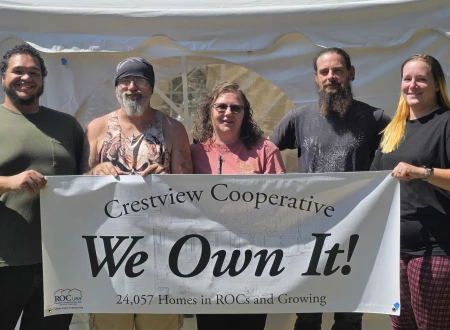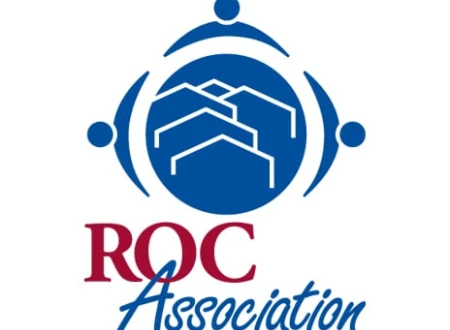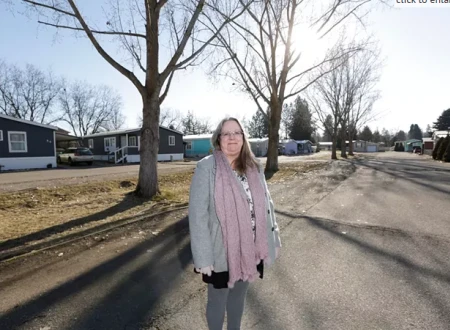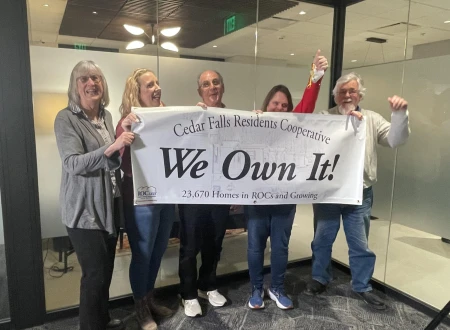WASHINGTON, D.C. – ROC USA’s Mary O’Hara testified before a U.S. House Appropriations Subcommittee on Thursday, laying out the benefits of resident ownership and urging Congress to take action to help improve existing ROCs and make it easier for other communities to become resident owned.
O’Hara, Executive Vice President of ROC Movement, was one of only five witnesses to speak about manufactured housing to the Transportation, and Housing and Urban Development, and Related Agencies (THUD) Subcommittee. She laid out how resident ownership helps homeowners as well as some of the challenges such as neglected infrastructure and the rapid rise of private equity forms scooping up portfolios of communities and raising rents for homeowners.
“There are good community operators who reinvest in capital improvements. But too often, homeowners who successfully purchase their neighborhoods must immediately turn their attention underground to address decades of disinvestment in aging water, sewer, and stormwater systems,” O’Hara said. “We’re talking basic health and safety infrastructure.
“Imagine, the lowest-income homeowners paying interest on millions in debt in order to have clean drinking water and safe sanitation.”
O’Hara spoke about her close work with Pasadena Trails, a 114-home ROC just outside Houston. This community was plagued with drainage issues, and even routine storms left massive pools of standing water including at the stop where neighborhood kids waited for the school bus. Fixing the issue topped Pasadena Trails’ priority list when they purchased the community in 2009, and the community decided to borrow enough to hire an engineer and address the drainage issues.
“Two weeks after they pulled the final draw on their construction loan, Hurricane Harvey devastated the Houston area. Pasadena Trails didn’t have a drop of standing water in the community, homeowners instead volunteered to bring supplies to their neighboring communities,” O’Hara said. “These are ordinary homeowners taking things into their own hands and using their own resources to pay for infrastructure that every other homeowner takes for granted.”
O’Hara went on to provide four ways the government can help ROCs:
- Include the $500 million Manufactured Housing Investment Grant in the HUD 2023 Appropriations bill. This is a set-aside within the CDBG program to fund critical infrastructure upgrades along with desperately needed storm shelters that some states require and, in ROCs, double as community centers and remote learning sites.
- Help create more of these communities. Give would-be resident owners the same kind of cheap Fannie and Freddie financing widely used by investors to purchase communities. While investors raise rents to earn exorbitant returns, resident owners stabilize rents, preserve affordability, and invest in their affordable housing asset. Acquisition financing can come from equity investments in CDFIs through the GSEs, FHA or the CDFI Fund, or through existing HUD programs.
- Public investment in investor-owned communities, including financing by Fannie and Freddie, should include a requirement of long-term lease provisions and the opportunity for the homeowners to purchase the property when it is put up for sale. This preserves the public investment and creates permanent long-term affordability.
- Congress should create a Manufactured Home Community Capital Gains Tax credit to encourage community owners to sell to the homeowners who live there, incentivizing operators want to sell to their residents.
Other witnesses included: Lance George, Director of Research and Information at Housing Assistance Council; Michael Liu, Director of the Miami-Dade Public Housing and Community Development Department; Dr. George McCarthy, President and CEO of Lincoln Institute of Land Policy; and Clemente Mojica, President and CEO of Neighborhood Partnership Housing Services.
In his opening statement, McCarthy called for reform of public finance systems. “Fannie Mae and Freddie Mac need to develop new finance products to support the sale of communities to their current residents,” he said. “They also should be required to publicly disclose details of every loan they purchase to support the sale of manufactured home communities to private investors.”
Watch the hearing:
Read O’Hara’s full testimony:
[pdf-embedder url=”http://rocusa.org/wp-content/uploads/2022/06/ROC-USA-Written-Testimony-for-THUD.pdf” title=”ROC USA Written Testimony for THUD”]







